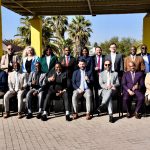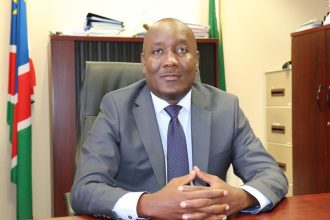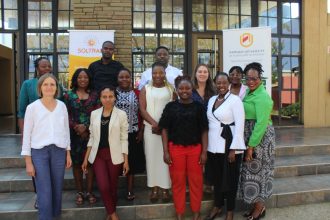RES4Africa Foundation has established itself as a leading platform for scaling-up sustainable electrification and renewable energy across the continent.
With the support of international utilities, technology providers, financial institutions, and academia, the Foundation acts as a bridge between Africa and Europe, promoting enabling policies, advancing market readiness, and strengthening local skills and institutions. Its approach is rooted in the belief that Africa’s energy transition must be led by African actors, equipped with the tools, expertise, and partnerships to build sustainable and inclusive power systems.
Southern Africa is central to this mission. The region accounts for almost a quarter of Africa’s GDP while representing only 16% of its population, highlighting its economic significance and its potential to lead the continent’s transition. Despite abundant solar, wind, and hydropower resources, the regional energy system remains overly dependent on coal, with grid constraints and supply insecurity holding back both growth and industrialisation. Climate shocks have further exposed these vulnerabilities, affecting millions of lives and livelihoods.
RES4Africa’s latest analysis underscores that overcoming these challenges requires decisive reforms, stronger cross-border interconnections, and investments in human capital to ensure that renewable potential is translated into long-term development.
To address these needs, RES4Africa’s Southern Africa Regional Programme has made capacity building its cornerstone. In 2025, the Foundation launched the pilot edition of the Southern Africa Executive School, a high-level managerial training aimed at reinforcing leadership and decision-making skills for the energy transition in the SADC countries. Complementing this initiative at vocational level, since 2021the Re-Skilling Lab supports the region’s remote and coal-dependent communities’ transition to a sustainable economy by enabling vocational education and training institutions (TVET) to provide renewable energy-based technical skills and connect learners with market opportunities.
Alongside these, RES4Africa develops technical studies that equip stakeholders with evidence-based solutions for renewable integration, ensuring that action is guided by robust knowledge. Theseinitiatives target different layers of the energy system, creating a comprehensive ecosystem of learning and problem-solving.
Particularly relevant topics of anaysis, covered by thematic programs, include :
- The topic of integrating large-scale variable renewable energy (VRE) systems into the electricity grid as it is becoming increasingly urgent for more developed African countries. The Grids4Africa Program is focused on the development of African electricity networks as an essential factor to achieve universal access to energy, improving the quality of service and increasingly integrating renewable sources into energy systems.
- Green hydrogen, produced through electrolysers powered by renewable sources, can help reduce emissions from industrial sectors that are difficult to electrify (such as transportation and heavy industries). RES4Africa Foundation is committed to support the development of green hydrogen in Africa through a dedicated Working Group comprised of experts from the Foundation’s member network, aimed at promoting and deepening knowledge, technological expertise, and training in this field.
This work will converge in Windhoek on 9 September 2025, when RES4Africa hosts a High-Level Masterclass, Market design and financing tools for a sustainable deployment of Green Hydrogen, in partnership with the European Investment Bank and in the framework of the Global African Hydrogen Summit, under the patronage of the Government of Namibia.
GREEN HYDROGEN PIONEER
Namibia is positioning itself as a pioneer in green hydrogen, drawing on its exceptional solar and wind resources to build an industry with continental and global reach. The Masterclass will equip policymakers, regulators, and professionals with deeper knowledge on renewable integration and hydrogen development, connecting technical expertise with the broader conversations on investment and policy taking place at the Summit.
For RES4Africa, green hydrogen is an important component of a wider electrification strategy: it depends on securing sufficient renewable generation capacity, requires a clear and competitive business model, and must be embedded in a strong regulatory and industrial framework to deliver real benefits. Approached in this way, hydrogen can complement other clean energy solutions, supporting industrialisation, exports, and resilience in a way that strengthens rather than diverts the region’s transition. Namibia’s ambition to develop this sector makes it a key testing ground for this integrated approach, where renewables, policy, investment, and capacity building converge.
Through its Southern Africa Regional Programme, RES4Africa is helping to ensure that this vision becomes reality. By reinforcing skills at managerial and technical levels, fostering dialogue between institutions and markets, and embedding green hydrogen within a broader electrification strategy, the Foundation is supporting Namibia and the wider region to turn their natural potential into lasting prosperity.






